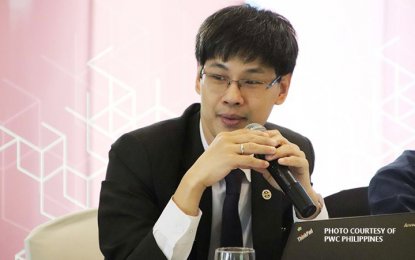Business and Economy
DOF exec eyes passage of at least 3 tax reform bills by yearend

Chua said they are finalizing the draft on the proposed Package 3, or the reform on valuation of properties, and Package 4, which is a comprehensive measure on reforms of financial taxes. (PNA File photo)
MANILA — Finance Undersecretary Karl Chua expressed optimism for the passage of at least three additional tax reform measures by the end of 2018.
To date, hearings on the proposed tax amnesty, rice tariffication, reforms on taxes on mining and alcohol as well as TRAIN Package 2, with the latter aimed at reducing corporate income tax (CIT) rates and modernize fiscal incentives, are on-going.
Officials of the Department of Finance (DOF) are also supporting Senator Manny Pacquiao’s proposed reform on tobacco tax, thus, Chua, in an interview by journalists Thursday, said they will not submit their own proposal on this.
Chua said they are finalizing the draft on the proposed Package 3, or the reform on valuation of properties, and Package 4, which is a comprehensive measure on reforms of financial taxes.
“Within the month we are going to submit to Congress,” he said.
The Finance official explained that by the end-August this year there will be at least six tax reform proposals in Congress, and these, he said, is already “a big load” for lawmakers.
“So really, it depends on Congress when these will be passed so I can’t give a timeline. But I’m really hopeful that at least they pass the three that are already in the hearing stage – – the amnesty, the rice tariffication and Package 2. That’s the minimum that we hope Congress can pass this year. The rest can follow,” he said.
Finance officials said the third and fourth packages of the DOF-proposed Comprehensive Tax Reform Program (CTRP) are revenue-neutral.
Chua, however, noted that although these two are deemed revenue-neutral it will only be short-term.
“Any reform will simplify (and) improve efficiency so in the long term it could generate some significant revenue,” he added.
Reforms on the country’s tax system are being undertaken to make it more in-tune with the times and ensure that government will be able to afford its massive infrastructure program dubbed “Build, Build, Build” as well as its social services program.
The Duterte government plans to spend around Php8 trillion until the end of its term in 2022 to put up infrastructure projects targeted to ensure that growth of the domestic economy will be felt even by those living in far-flung areas.
The first tax reform package, the Tax Reform for Acceleration and Inclusion Act (TRAIN), was signed into Law on December 19, 2017.
Among others, it exempts workers’ first Php250,000 annual income from being taxed. This allows more people a higher take-home pay, thus, more money to spend and help boost domestic growth.
Its negative impact on government revenues is reportedly being countered by the increase of excise tax on petroleum products and vehicles as well as the introduction of excise tax on sugar-sweetened beverages and on cosmetics.





















